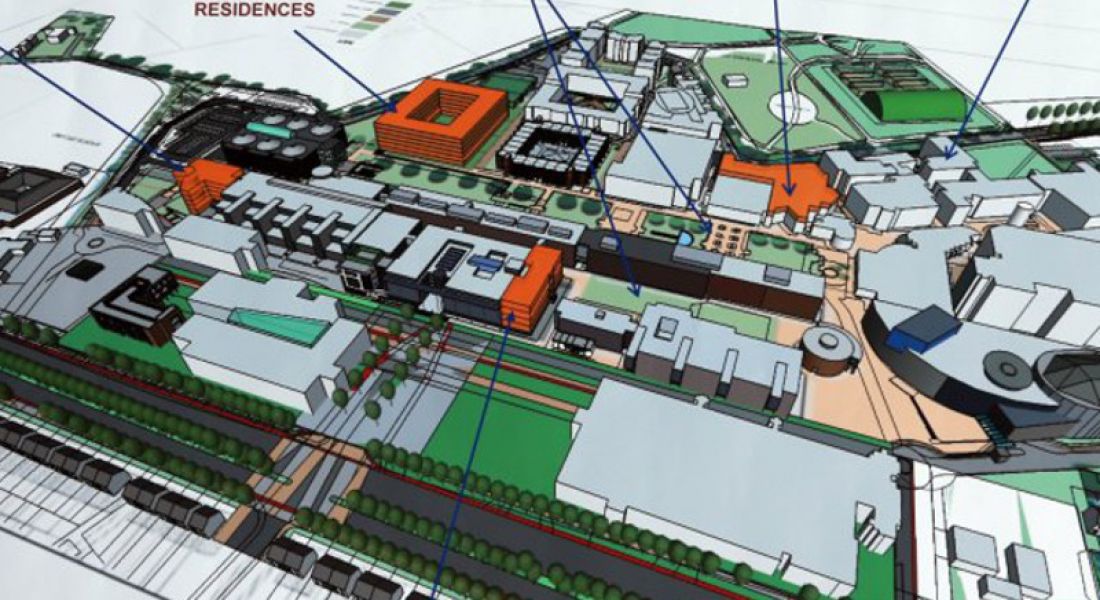Dublin City University (DCU) is undertaking an ambitious €230m capital development plan to transform the campus, with digital teaching spaces, on-campus accommodation, and a campus-wide digital transformation.
DCU has secured long-term loan and bridging finance from the Ireland Strategic Investment Fund and the European Investment Bank. Other sources of finance to support the plan will come from philanthropic donations, government grants, student contributions and funding from the university itself.
“We can now fully embark on this ambitious programme of development, which will not only advance our mission of excellence in education, research and innovation but also enhance the DCU student experience of a growing student body, which will number 16,000 on completion of incorporation of St Patrick’s College, Drumcondra, Mater Dei Institute of Education and the Church of Ireland College of Education in September this year,” said Prof Brian MacCraith, president of DCU.
The Ireland Strategic Investment Fund will provide funding of €54m towards upgrading student accommodation, including facilities at All Hallows College, buildings on the St Patrick’s College campus and on the Glasnevin campus that will boost total capacity to more than 2,200 student beds.
The European Investment Bank will provide a 23-year loan to DCU for €76m to construct new research and innovation buildings, student accommodation and 21st-century digital teaching spaces.
Total transformation of DCU
An IT transformation and teaching equipment renewal programme aims to provide a state-of-the-art digital campus experience for students and staff alike.
The construction of extensions on the Glasnevin campus will provide new lecture theatres and classrooms for the delivery of programmes across a range of disciplines.
Construction of a new student centre will begin in the summer to create a purpose-built space for students’ social, cultural, global engagement and entrepreneurial activities.
Research and innovation capacity at DCU will be significantly enhanced with the completion of new 3,000sqm Nano-Bioanalytical Research Facility on the Glasnevin campus.
DCU Alpha, the university’s innovation campus, will also benefit from the financing as it seeks development partners for the next phase of refurbishment and expansion of its growing tech cluster, which already accommodates 35 companies employing more than 350 staff.
The capital investment will complement and facilitate the rollout of key DCU projects which were announced at the recent launch of DCU/Shaping the Future, an ambitious €100m fundraising drive by the university that will prioritise life-impacting research in the areas of connected health, media, education, conflict resolution and water quality among other areas.




